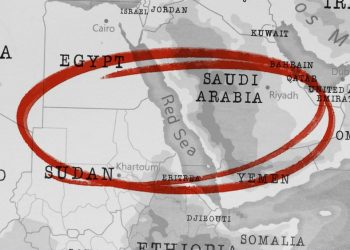Lessons learnt
Clay Maitland has been employed by International Registries, Inc. for 35 years and now is a managing partner of the company, which administers the Marshall Islands Ship Registry – the third largest registry in the world. He is also, President of the Trust Company of the Marshall Islands (TCMI), the statutory Maritime Administrator of the Republic of the Marshall Islands.
Among other affiliations, he is a Founding Chairman of the North American Maritime Environment Protection Association (NAMEPA) and has served as a delegate to the Legal Committee of the International Maritime Organization (IMO).
S4S: Why the Deep Water Horizon is so important?
CM: Although reduced in number, major oil spills still occur and when they occur they come with disastrous results. Unfortunately, most of our emphasis has been on the response to oil spills and not on the prevention of oil spills. We seldom speak about actually how to prevent a spill. We have not actually been able to come to grips with some of the major problems that come to light and certainly, came to light with regard to the Deep Water Horizon Spill or Macondo oil Spill. And as you probably know that was not from a tanker at all. That was from a very deep oil well, that actually was not properly cemented and resulted in a catastrophic leakage of gases and drilling mad from the actually well itself with almost an immediate fire and explosion and the tragic loss of 11 lives.
S4S: In your view, what led to this major disaster?
CM: Various legislative responses over the years have been adopted to prevent oil spills and we have seen a considerable measure of success. But still these major disasters occur. In the case of DWH there was a massive ISM failure. The regulators are blamed.
S4S: In your opinion, which are the solutions?
CM: What are the solutions? Counterparts should be able to audit compliance with the ISM and that’s where the problem lies. It is very difficult to audit a process. We tend to be very metric. We’re an industry of engineers. But this is not a metric problem. This is a problem of human compliance and requires a degree of oversight that governments cannot afford financially. One thing that can be done is that modern electronics and computers can help us analyze what kind of ships will enter our ports and our economic zone, what kind of drilling will take place.
DWH gathered a great deal of attention. Volunteers came around to the US. Risk management attitudes in conclusion are going to have to change.
Up to now, there’s been an assumption that if there’s been a major oil spill, the ship-owner or the operator, or another private party could insure against the cost. But much of the problem that is faced when an oil spill takes place is political.
S4S: What is your proposal? Shall the ISM code be refined or reevaluated?
CM: The ISM code has got to be carefully reevaluated in terms of how we analyze compliance before the spill takes place. That’s where information technology comes in, that’s where a more sophisticated approach by governments, including the flag states comes in. We have got to be able to spot not compliance much sooner. Port states, coastal states, EC, have got to have much better data, so that the deficiencies that exist out there and by no means are they related to the private sector are also governmental shortcomings, they have to be observed and noted. There must be exercises and drills. The problem in the Mediterranean basin is that you deal with 20 different countries, not all of them in the EU. Getting all these countries organized and getting an inventory of the resources that are needed is going to be a very difficult task. But I urge that it is undertaken without further delay.
Clay Maitland is Fouding Chairman of NAMEPA and Managing Partner of International Registries
You may also visit Clay’s blog at www.claymaitland.com
This interview is an edited version on Clay’s presentation at 2nd Safety4Sea Forum .
You may view Clay’s presentation video during 2nd Safety4Sea Forum































































